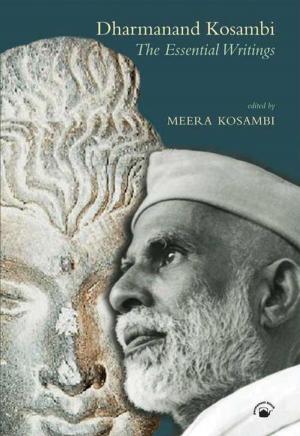Gandhi
In His Time and Ours
Biography & Memoir, Political, Nonfiction, Social & Cultural Studies, Social Science| Author: | David Hardiman | ISBN: | 9788178244280 |
| Publisher: | Permanent Black | Publication: | May 13, 2013 |
| Imprint: | Language: | English |
| Author: | David Hardiman |
| ISBN: | 9788178244280 |
| Publisher: | Permanent Black |
| Publication: | May 13, 2013 |
| Imprint: | |
| Language: | English |
This book examines Gandhi as the creator of a radical style of politics. It argues that whereas politicians garner support by demonising those they oppose, Gandhi resisted such a politics. He asserted that there are always grounds for a fruitful dialogue between opponents. How did Gandhi create this new form of politics? Hardiman shows its basis within Gandhis larger vision of an alternative society based on respect, non-violence, and ecological harmony. His politics in turn constituted one of the many directions by which he activated this peculiarly personal vision. The practice of such a politics entailed personal and institutional experiments in relation to his opponents, who ranged from colonials to violent resisters, from right-wing religious leaders and upholders of caste privilege to socialists and Dalits. Gandhis conflicts and dialogues with all these are studied. Various key issues in Gandhis life and legacy are also examined. His sexuality and programme for women are looked at in the light of feminist critiques. His inconsistencies, mistakes and failures (as husband and father) are carefully scrutinised. Hardimans effort is to show that Gandhi, despite his limitations, provides a beacon because of the uncompromising honesty of his political life and moral activism. Finally, there is Gandhis enduring legacy: Jayaprakash Narayan, Medha Patkar, Martin Luther King, Nelson Mandela and Petra Kelly are discussed. Gandhis influence on new social movements—by environmentalists, anti-war campaigners, feminists, human rights activists—are also examined to assess his legacy.
This book examines Gandhi as the creator of a radical style of politics. It argues that whereas politicians garner support by demonising those they oppose, Gandhi resisted such a politics. He asserted that there are always grounds for a fruitful dialogue between opponents. How did Gandhi create this new form of politics? Hardiman shows its basis within Gandhis larger vision of an alternative society based on respect, non-violence, and ecological harmony. His politics in turn constituted one of the many directions by which he activated this peculiarly personal vision. The practice of such a politics entailed personal and institutional experiments in relation to his opponents, who ranged from colonials to violent resisters, from right-wing religious leaders and upholders of caste privilege to socialists and Dalits. Gandhis conflicts and dialogues with all these are studied. Various key issues in Gandhis life and legacy are also examined. His sexuality and programme for women are looked at in the light of feminist critiques. His inconsistencies, mistakes and failures (as husband and father) are carefully scrutinised. Hardimans effort is to show that Gandhi, despite his limitations, provides a beacon because of the uncompromising honesty of his political life and moral activism. Finally, there is Gandhis enduring legacy: Jayaprakash Narayan, Medha Patkar, Martin Luther King, Nelson Mandela and Petra Kelly are discussed. Gandhis influence on new social movements—by environmentalists, anti-war campaigners, feminists, human rights activists—are also examined to assess his legacy.















